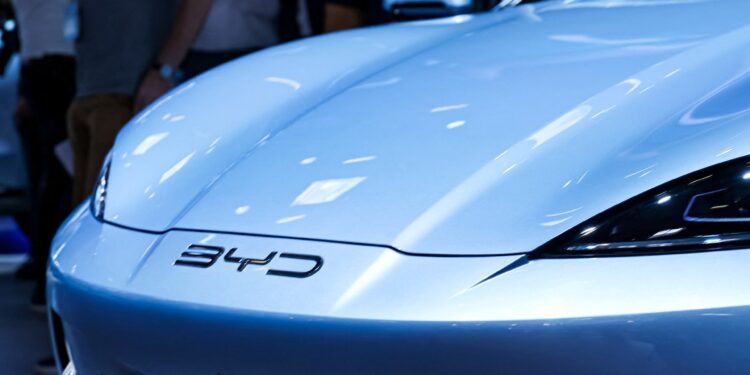Leading Chinese automaker BYD on Wednesday reported a 24.4% rise in net profit for the first half of 2024, boosted by continued strong demand for electric vehicles in domestic and overseas markets.
BYD posted a net profit of $1.9 billion in the January-June period, compared with $1.54 billion in the same period last year, according to results posted on the Hong Kong Stock Exchange, where it is listed.
The company said sales during the period amounted to $42.3 billion, an increase of 15.8% year-on-year.
Shenzhen-based BYD, whose slogan is “Make Your Dream Come True,” is the leading electric vehicle manufacturer in China, the world’s largest auto market.
The Chinese leadership aims for electric and hybrid cars to account for the largest share of sales by 2035.
In July, these vehicles accounted for more than half of total domestic sales, crossing that threshold for the first time, according to the China Association of Automobile Manufacturers.
Generous government subsidies initially helped boost sales, but these policies were gradually phased out in late 2022 and the market now appears to have reached maturity.
Since then, domestic electric vehicle companies have engaged in a fierce price war as they seek to maintain competitiveness, affecting their profitability.
BYD said it has effectively dealt with the challenges brought by intense industrial competition.
External challenges
BYD and other Chinese electric vehicle companies have accelerated expansion abroad in recent years, despite concerns in Western countries that domestic markets are being flooded with imports at prices they consider artificially low.
The EU said government subsidies on cars gave Chinese companies an unfair advantage in foreign markets, stifling competition and harming the competitiveness of European carmakers.
Earlier this month, Brussels released a draft plan to impose tariffs of up to 36.3% on Chinese electric cars, a measure that would become permanent in October unless a deal is reached with Beijing.
The United States said in May it would dramatically raise tariffs on Chinese electric cars to 100%.
Canada also announced 100% tariffs the day before yesterday, accusing China of “not playing by the same rules as other countries” in areas such as environmental and labor standards.
However, BYD is expanding its presence abroad, with plans to open factories in Hungary and Turkey.
Originally specializing in the design and production of batteries, BYD diversified into the automotive industry in 2003.



